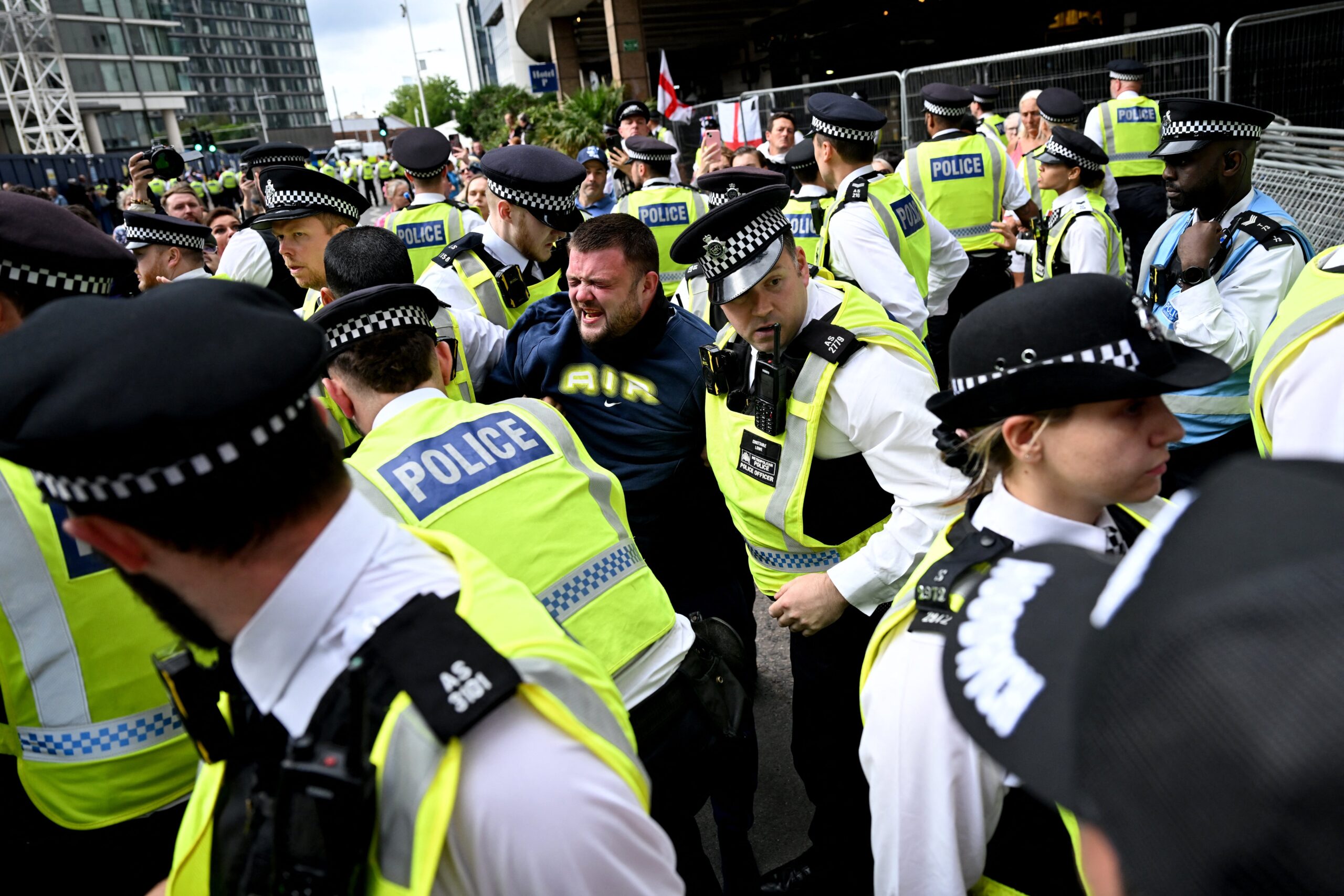Anti-immigration protests have surged in recent weeks, with some targeting hotels used to house asylum seekers, sparking violence and prompting multiple arrests.
Amid the demonstrations, misleading claims about the cost of accommodating migrants have been spreading widely online.
But what does it actually cost to house asylum seekers in hotels — and how are false figures shaping public anger?

Misleading figures spread online
One focal point has been the Britannia Hotel in Canary Wharf, East London, which has witnessed clashes between anti-immigration protesters and anti-racism demonstrators, leading to the arrest of two people on 8 August.
Social media posts and viral messages have claimed that housing asylum seekers in hotels costs the government between £200 and £500 per night. However, there is no evidence to support these figures.
One expert claims these kinds of falsehoods are “most likely spread with a strategic purpose in mind”.
The real cost
The Home Office told The Independent that the Britannia Hotel costs £81 per night to house asylum seekers.
In March 2025, the average cost per night for a hotel room used to accommodate asylum seekers was £118.87 — down from £162.16 in March 2023. Across all hotels, this equates to around £5.77m per day, down from £8.3m per day the previous year.
Stephan Lewandowsky, Professor of Cognitive Science at the University of Bristol, told The Independent that false information spreads because divisive posts attract more attention from readers.
He said: “Social media algorithms favour information that is outrage-evoking because it generates more audience engagement – hence making more money for the platforms – and in consequence disinformation often has an advantage over factual content and spreads faster and further. On top of that, the goal is, of course, to incite hatred and what better way to do that than to spread outrageous falsehoods.”

These misleading claims are not just a matter of numbers. Experts warn they could amplify public anger and stoke already high tensions.
“There is now very clear and strong evidence that online misinformation can cause real-world harms. For example, last year’s riots in the UK targeted mosques based on the false rumour that the perpetrator of a heinous crime was a Muslim refugee – he was not, he was a native-born British citizen,” Mr Lewandowsky said.
Court ruling piles pressure on Starmer
Pressure is mounting on Prime Minister Sir Keir Starmer after Epping Forest District Council secured an interim High Court injunction to ban migrants from being housed at The Bell Hotel after weeks of protests at the site.
The council argued the site had become a “feeding ground for unrest” following a spate of violent protests that left several police officers injured.
On 4 August, Starmer condemned the violence as “far-right thuggery” and warned that those responsible would face the “full force of the law.”
For now, one of many challenges for ministers will be to ensure the facts about the costs of asylum hotels are reaching the public.
